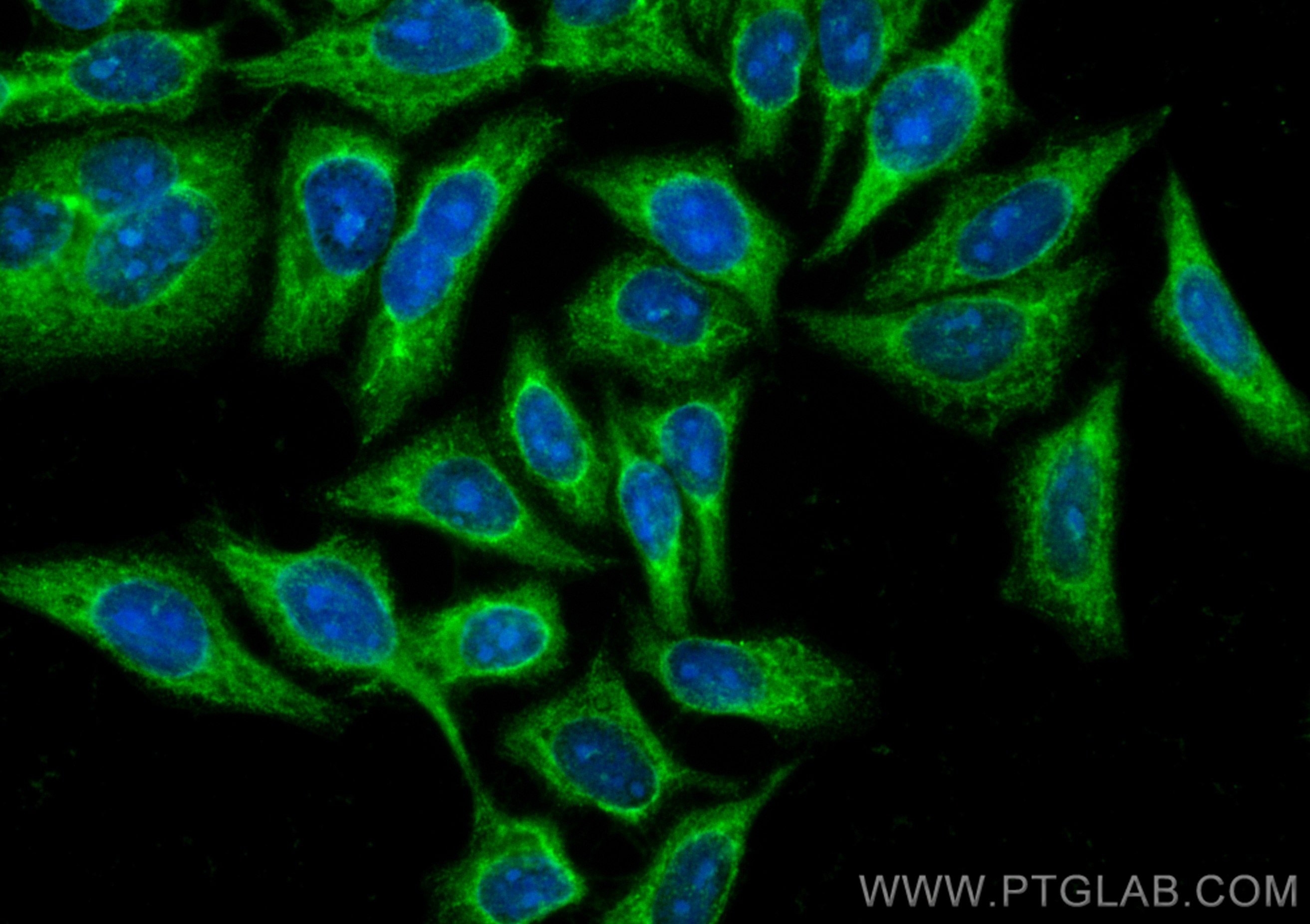CoraLite® Plus 488-conjugated DEPDC6/Deptor Polyclonal antibody
DEPDC6/Deptor Polyclonal Antibody for IF
Host / Isotype
Rabbit / IgG
Reactivity
human, mouse, rat
Applications
IF
Conjugate
CoraLite® Plus 488 Fluorescent Dye
Cat no : CL488-20985
Synonyms
Validation Data Gallery
Tested Applications
| Positive IF detected in | HepG2 cells |
Recommended dilution
| Application | Dilution |
|---|---|
| Immunofluorescence (IF) | IF : 1:200-1:800 |
| It is recommended that this reagent should be titrated in each testing system to obtain optimal results. | |
| Sample-dependent, Check data in validation data gallery. | |
Product Information
CL488-20985 targets DEPDC6/Deptor in IF applications and shows reactivity with human, mouse, rat samples.
| Tested Reactivity | human, mouse, rat |
| Host / Isotype | Rabbit / IgG |
| Class | Polyclonal |
| Type | Antibody |
| Immunogen | Peptide |
| Full Name | DEP domain containing 6 |
| Calculated Molecular Weight | 46 kDa |
| Observed Molecular Weight | 40-45 kDa |
| GenBank Accession Number | NM_022783 |
| Gene Symbol | DEPDC6 |
| Gene ID (NCBI) | 64798 |
| Conjugate | CoraLite® Plus 488 Fluorescent Dye |
| Excitation/Emission Maxima Wavelengths | 493 nm / 522 nm |
| Form | Liquid |
| Purification Method | Antigen affinity purification |
| Storage Buffer | PBS with 50% Glycerol, 0.05% Proclin300, 0.5% BSA, pH 7.3. |
| Storage Conditions | Store at -20°C. Avoid exposure to light. Stable for one year after shipment. Aliquoting is unnecessary for -20oC storage. 20ul sizes contain 0.1% BSA. |
Background Information
DEPDC6, also named as DEPTOR, was identified as a novel mTOR-interacting protein whose over-expression in certain cell types represents a new mechanism for activating PI3K/Akt signaling and promoting cell survival. It negative regulator of the mTORC1 and mTORC2 signaling pathways. DEPDC6 inhibits the kinase activity of both complexes. The antibody is specific to DEPDC6.
Protocols
| Product Specific Protocols | |
|---|---|
| IF protocol for CL Plus 488 DEPDC6/Deptor antibody CL488-20985 | Download protocol |
| Standard Protocols | |
|---|---|
| Click here to view our Standard Protocols |


